#oily scalp hair loss treatment
Text
5 Simple Solutions If You Suffer From An Oily Scalp & Dry Hair.
If you suffer from an oily scalp and dry hair, you know how frustrating it can be to try and find a hair care routine that works for you. Too often, shampoos and conditioners are designed to target one specific issue, leaving you with hair that's either too oily or too dry. Prefer elixir hair oil. You can have oily scalp hair loss treatment. The good news is that there are simple solutions you can try to balance your scalp's oil production and hydrate your hair.
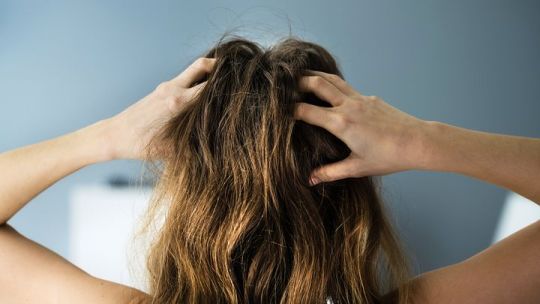
1) Use a clarifying shampoo.
If you have an oily scalp, you may be tempted to wash your hair every day to get rid of excess oil. You can use hair growth cream. Look for a shampoo that contains ingredients like tea tree oil, which can help control oil production, and salicylic acid, which can gently exfoliate your scalp and prevent clogged pores. You can buy hair loss products online.
2) Condition only the ends of your hair.
When you have dry hair, it's important to use a conditioner to hydrate and nourish your strands. However, if you apply conditioner to your scalp, it can make your hair look greasy and weigh it down. You can prefer hair growth cream. This will help prevent split ends and breakage, while also keeping your hair hydrated and healthy.
3) Use a scalp scrub.
Exfoliating your scalp can help remove dead skin cells, excess oil, and other impurities that can clog your pores and cause an oily scalp. It can also stimulate blood flow to your scalp, which can promote hair growth and improve overall scalp health. You can use elixir hair oil. Look for a scalp scrub that contains ingredients like sugar, salt, or charcoal, which can help remove buildup and leave your scalp feeling clean and refreshed. You can also buy hair loss products online. Make sure you have oily scalp hair loss treatment.
4) Try a hair mask.
If your hair is feeling particularly dry, a hair mask can help restore moisture and improve its overall health. You can even have hair growth cream. Apply the mask once a week, focusing on the mid-lengths and ends of your hair, and leave it on for 10-15 minutes before rinsing it out.
5) Avoid heat styling.
Using heat styling tools like blow dryers, flat irons, and curling irons can strip your hair of its natural oils, making it even drier and more prone to breakage. You can prefer elixir hair oil. You can prefer to buy hair loss products online. When you do use heat styling tools, be sure to use a heat protectant spray to minimize damage and keep your hair looking healthy. You can have oily scalp hair loss treatment.
In conclusion, an oily scalp and dry hair can be a frustrating and challenging problem to deal with, but it's not impossible to manage. You can have oily scalp hair loss treatment. You can buy hair loss products online. Remember, consistency is key, so stick with your new routine and you'll start to see results in no time.
0 notes
Text
Home Remedies for Oily Dandruff: Effective Solutions for a Healthy Scalp
Seborrheic dermatitis, another name for oily dandruff, is a common condition that can be brought on by inflammation, excess oil production, or an excessive amount of yeast on the scalp. Since there is no permanent cure for dandruff, there are a few home remedies for oily dandruff that can help control and lessen the oily scalp thinning hair.
Pay attention that each person may respond differently to these treatments, so if you have any concerns about the health of your itchy oily scalp with hair loss, it is always a good idea to speak with a doctor for advice.

Home Remedies for Oily Dandruff
Here are some natural remedies for oily dandruff you can try,
1. Tea Tree Oil
How to prepare:
Tea tree oil may help lessen dandruff due to its antifungal and antibacterial qualities. Apply a small amount of tea tree oil to your scalp by combining it with a carrier oil, such as coconut oil. Try not to wash your hair for around fifteen minutes after applying it.
2. Aloe Vera
How to prepare:
Another home remedies for oily dandruff is Aloe vera. It has calming and anti-inflammatory qualities. On your scalp, apply fresh aloe vera gel directly. Rinse it off after 15 to 20 minutes. Aloe vera shampoos are another option.
3. Apple Cider Vinegar
How to prepare:
After shampooing, use a scalp rinse made of equal parts water and apple cider vinegar. It might lessen dandruff and help your scalp's pH balance.
4. Coconut Oil
How to prepare:
Coconut oil diy for dandruff and oily scalp has antibacterial qualities and can hydrate the scalp. After applying warm coconut oil to your scalp and letting it sit for at least half an hour, wash your hair.
5. Baking Soda
How to prepare:
For oily dandruff hair, mix water and baking soda to make a paste, then gently massage the mixture into your scalp. Give it a good rinse. Baking soda might help in reducing oiliness and cleansing the scalp.
6. Omega-3 Fatty Acids
How to prepare:
Incorporate into your diet foods high in omega-3 fatty acids, like fatty fish, chia seeds, and flaxseeds. These can improve the general health of the scalp along with oily dandruff treatment.
7. Select Best Shampoo for Oily Hair and Dandruff
How to prepare:
Do regularly shampoo for oily dandruff hair with a gentle anti-dandruff shampoo. Take care not to overwash your scalp because this might remove its natural oils and cause it to produce more oil.
8. Manage Stress
How to prepare:
Oily hair dandruff and hair loss can be worsened by stress. Engage in stress-relieving activities such as yoga, meditation, or deep breathing techniques.
9. Probiotics
How to prepare:
Taking probiotics could help keep the microbes on your scalp in balance. Think about including foods high in probiotics, such as yogurt, in your diet.
10. Avoid Harsh Hair Products
How to prepare:
Keep clear of hair products that contain harsh chemicals that could irritate the scalp and use gentle best shampoo for oily dandruff hair and conditioners instead.
Read: How to Make Vitamin E Oil for Hair Growth?
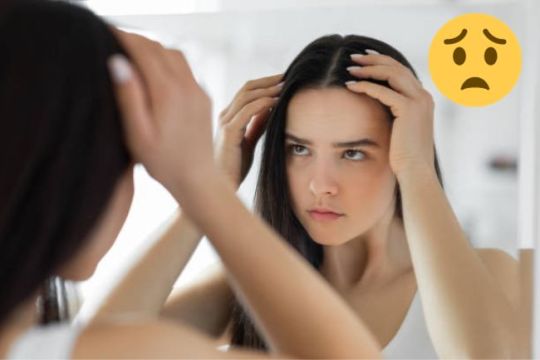
11. Lemon Juice
How to prepare:
Try this oily dandruff scalp treatment, your scalp's pH can be balanced by the acidity of lemon juice. Apply a mixture of lemon juice and water to your scalp. Before washing your hair, let it sit for five to ten minutes.
12. Neem (Indian Lilac)
How to prepare:
Neem has antibacterial and antifungal qualities for oily dandruff and hair loss. Neem oil or a paste made from neem leaves can be applied directly to the scalp. Before washing, leave it on for about 30 minutes.
13. Honey
How to prepare:
Honey has related antifungal and antibacterial qualities. Apply a mixture of honey and warm water to your scalp. Before washing your hair, leave it on for 20 to 30 minutes.
14. Fenugreek (Methi) Seeds
How to prepare:
Fenugreek seeds should be soaked in water for a whole night, then ground into a paste and applied to the scalp. Before washing your hair, let it sit for approximately half an hour. Fenugreek is time tested home remedies for dandruff and oily scalp. It has antifungal and anti-inflammatory qualities.
15. Green Tea Rinse
How to prepare:
After brewing, let the green tea cool. After shampooing your hair, use it as a last rinse. In addition to its antioxidant content, green tea can be calming for the scalp.
16. Onion Juice
How to prepare:
Opt for this kitchen dandruff home remedy for oily scalp; onion juice has antimicrobial qualities despite its powerful smell. Juice an onion and rub it onto your scalp. Before washing, leave it on for approximately 30 minutes.
17. Epsom Salt
How to prepare:
Shampoo and Epsom salt should be combined before washing your hair. Epsom salts can minimize oily dandruff hair loss and exfoliate the scalp.
18. Jojoba Oil
How to prepare:
Jojoba oil is very similar to the sebum that the scalp naturally produces. Oil production can be regulated with the use of jojoba oil. Before washing, massage a small amount into your scalp and let it sit there for a few hours. Be assured with this dandruff oily hair home remedies idea.
19. Curd (Yogurt) Mask
How to prepare:
Before washing, apply plain yogurt to your scalp and let it sit there for 30 minutes. Yogurt's probiotics may help in recovering the microbiome balance on the scalp.
20. Essential Oils
How to prepare:
Essential oils with oily scalp dandruff treatment have anti-dandruff qualities include peppermint, lavender, and rosemary. Apply a few drops to your scalp after mixing them with carrier oil.
Read: What Really Makes the Hair Grow - The Simple Science

21. Garlic
How to prepare:
Garlic possesses related antifungal qualities. Juice from a few crushed garlic cloves should be combined with carrier oil. After applying the mixture to your scalp and letting it sit for half an hour, wash your hair.
22. Burdock Root
How to prepare:
Burdock root contains antioxidant and anti-inflammatory qualities. Burdock root tea can be prepared and used as a scalp rinse. Burdock root extract can also be found in some best shampoos for oily hair with dandruff.
23. Cucumber
How to prepare:
Juice from a mashed cucumber should be applied to your scalp. Before rinsing, leave it on for about 30 minutes. Cucumber soothes irritated scalps and has a cooling effect.
24. Chamomile Tea Rinse
How to prepare:
There are anti-inflammatory qualities to chamomile. After making chamomile tea, allow it to cool before using it as a last hair rinse. The scalp may find chamomile to be calming.
25. Turmeric
How to prepare:
Turmeric has antifungal and anti-inflammatory oily hair dandruff hair loss qualities. Use oil or water and turmeric powder to make a paste that you can apply to your scalp. Before washing, let it sit for 10 to 15 minutes.
26. Salt Scalp Scrub
How to prepare:
Gently massage your scalp with a mixture of coarse sea salt and your usual shampoo. These can helpful dandruff and oily scalp home remedies in removing extra oil and exfoliating.
27. Almond Oil
How to prepare:
Nutrient-rich almond oil has the potential to hydrate the scalp. Before washing, massage a tiny bit of almond oil into your scalp and let it sit there for a few hours.
28. Tomato Juice
How to prepare:
On your scalp, apply fresh tomato juice, and let it remain for 15 to 20 minutes before rinsing. The acidic nature of tomatoes may help bring the pH of the scalp into balance. Consider this home remedies for oily dandruff solution too.
29. Walnut Scrub
How to prepare:
To make a scrub, carefully powder walnuts and combine them with water. To remove extra oil and exfoliate your scalp, gently massage this in.
30. Lifestyle Changes
How to prepare:
Think about changing your way of life to avoid overusing heat styling, control your stress, and eat a balanced diet. Each of these factors may have an impact on scalp health.
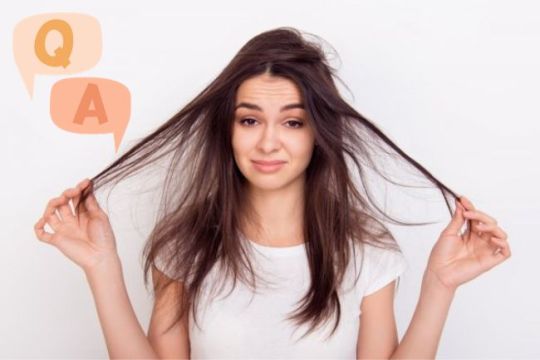
Frequently Asked Questions
1. Why is my hair so oily?
Sebum, the natural oil produced by the scalp, may be produced in large quantities, making your hair oily.
This too much oiliness can be caused by several factors, including hormonal fluctuations, genetics, and an imbalance in oil production. Certain hair care habits, such as overwashing or using many products, may also be important.
2. What is oily dandruff called?
Seborrheic dermatitis is a common term used to describe oily dandruff. Excessive sebum production is the indicator of this condition, resulting in a greasy scalp and the formation of yellowish, oily flakes. On the scalp, seborrheic dermatitis can also cause redness and inflammation.
3. Should I oil my hair if I have oily scalp?
Applying oil to an oily scalp should be done with caution. While heavy oils or excessive application can worsen the problem, some oils can help balance the scalp's natural oil production.
If you decide to use oil or home remedies for oily dandruff, use light varieties like jojoba or tea tree oil and apply carefully to prevent further greasiness.
4. Is naturally oily hair good?
The management of naturally oily hair and personal preferences are the main factors that determine whether oily hair is good or bad. Naturally oily hair has several advantages, such as increased shine and hair shaft protection.
But too much oiliness can cause problems like greasiness and require more frequent washing. Maintaining healthy and manageable hair requires striking a balance with a treatment that fits your preferences and hair type.
5. Which oil is best for oily dandruff?
One of the greatest home remedies for oily dandruff is frequently thought to be tea tree oil. It is essential antifungal and antibacterial qualities may help in treating the root causes of dandruff. Further, tea tree oil has a drying effect that is advantageous for controlling oily scalps.
To make sure you are not experiencing any negative side effects, it is essential to dilute tea tree oil with carrier oil and conduct a patch test before using it.
more >>>
2 notes
·
View notes
Text
How Can I Get My Hair Transformed?

Whether you want to transform your hair with color or cut, it is time to take care of it. Your hair is exposed constantly to the elements, pollution, stress, and styling chemicals and tools. So if you are in the quest for having that lustrous mane, whether in curls, straight, or waves, you need to get your hair transformed from the salon by a professional.
In most cases, we rarely think twice before pampering our face at least once a month in a beauty parlor, so why not indulge your hair a bit too? Let it shine and transform from within.
In this article, we will look into five ways to transform your hair in the salon without getting a cut or color.
1. Use Of Keratin
It's time to stop your fight with frizzy, unruly hair and get it transformed with Keratin treatment. You no longer have to torture your hair with flat irons and harsh chemicals to get straight and manageable hair. Regular Keratin treatment can help you achieve that while nourishing your hair with protein.
2. Scalp Treatment
You love your hair length and style, but you are at your mind's end on how to control the dry, itchy scalp or the oily one. The scalp facial, a growing Japanese trend, helps you to scrub the scalp of any sebum. With a healthy scalp, you can warrant healthy hair that is naturally lustrous.
Also, Read - 5 Ways to Transform Your Hair
3. Hot Oil Treatment
This has been part of hair treatment for centuries and can be done at home. But if you want to get the most of this treatment that will transform your hair, get it done at the salon. You can enjoy the immediate benefit since it seals the hair's cuticles while adding instant shine to damaged and dry hair. It also adds volume to flat hair, transforming the mane within half an hour like never before.
4. Moisture Treatment
Suffering from dry hair that also has split ends? The moisture treatment, also known as deep conditioning, adds extra nourishment and moisture to the hair. The unruly tresses are given a deep repairing massage that hydrates the scalp and the hair. In the end, you will have bouncy and healthy hair. This is especially beneficial when you add color to your hair. The colors can make your hair dry, so add the moisture treatment to your coloring service next time.
Also, Read - PRF Treatment For Hair Loss: Procedure, Cost, Benefits
5. Detox Treatment
Are you suffering from your hair growth being stunted? First, check if your hair is ridden with chemicals and other hair product buildups. Then, you can undergo the detox treatment that removes all these chemicals and clears the hair shaft and the scalp while stimulating hair growth. The treatment while removing the impurities adds nourishment to the hair that gives a natural glow to your hair. We all want the transformation of the hair, i.e., enjoy our natural healthy tresses.
If you are looking for ways to transform your colored hair, then toning treatment is the option. It helps in perfecting the color of the hair. It can be availed in-between complete coloring services or full coloring services. But try and avoid doing the treatments at home, whether coloring from a box or using Keratin products directly on hair without proper experience. You will be incurring more damage than enviable hair transformation.
Final Words
Next time when you are fighting the split ends, patchy colors, unruly frizzy, or damaged hair, go to the salon for your hair transformation. Trust us. You will be thankful that you went there.
2 notes
·
View notes
Text
5 Natural Hair Loss Supplements to Consider
There are many natural DIY therapies you can employ at home in addition to the variety of prescription drugs that are easily and affordably available from internet doctors. At ExpressMedRefills, we recognise how crucial it is for our patients to be comfortable with both their outward appearance and inside state. Here, we'll look at 10 all-natural vitamins, supplements, and other components that can help your hair.
1 Vitamin A
Retinol, another name for vitamin A, is crucial for the health of your scalp and hair. Vitamin A-containing products fortify and shield hair from further harm. As Healthline claims, "Vitamin A is essential for cell growth. This includes hair, which is the human body tissue that grows the quickest. Sebum, an oily fluid produced by skin glands, is also assisted by vitamin A. Sebum helps maintain healthy hair by moisturising the scalp. Vitamin A deficiency in the diet can cause a number of issues, including hair issues."
You can purchase vitamin A as a standalone supplement or as part of a multivitamin. Meat, fish, and organs all naturally contain vitamin A.
2 Protein
Protein, like vitamin A, is necessary for hair development. In reality, protein is essential for the development of various bodily parts, including muscle and skin. Web MD claims that "Protein is crucial to bolster hair and encourage growth. Two to three 3-ounce servings of meat per day are advised, as are four to five servings each of dairy and beans."
Drinking protein smoothies or include extra meat, fish, and poultry in your diet are two ways to increase your protein intake. Additionally, seeds, nuts, and soy products are natural sources of protein.
3 Collagen
Your hair gets the amino acids it requires from collagen to make keratin. Hair is made of a protein called keratin. Although collagen can be ingested, it's frequently used topically in the form of creams, hair masks, specialist shampoos, and treatments.
It's well known that collagen shields the skin, and it also does the same for your hair. It gives hair the suppleness and bounce it needs to break less frequently
4 Iron
People who lack enough iron frequently experience hair loss. This is so because iron helps to make haemoglobin, which is essential for having healthy hair. According to Dr. Gray of Women's Day, "Korean researchers showed that adequate iron levels can assist women prevent hair loss… Red blood cells, which carry oxygen and nutrition, must have iron to develop.
5 Biotin
Biotin, a B vitamin, is another element required for strong, healthy hair. Without biotin, your hair dries out, your nails weaken, and other areas of your body start to ache. In an article for Cleveland Clinic, dermatologist Wilma Bergeld, MD, explains: "We discover that biotin is highly beneficial for hair problems. Additionally, it thickens the nails. Oral biotin is extremely safe, even in high dosages."
You can either eat extra spinach, sweet potatoes, and eggs or purchase biotin as a supplement with an online doctor's prescription.
3 notes
·
View notes
Photo

@rated_green is a hair care focus on listening to each person's hair issues and using natural, vegan ingredients to help. They are Eco-cert, meaning ingredients that are organic and no animal derived ingredients, animal cruelty free brand. They reached out to see if I was interested in trying their products, and I chose to try the Rosemary balancing scalp pack. I love a good scalp treatment, but this one in particular surprised me. I thought it was a scrub, which is usually what you find for scalp treatments, but it is not, is like any other treatment you would use for hair, but better. It contains organic cold pressed rosemary juice and charcoal that provide nutrients to the hair, revitalize oily scalp, and leave hair soft and manageable. It has a creamy, light texture, color gray, and it smells like rosemary/peppermint, not overpowering but pleasing. After shampooing your hair, take a generous amount and massage on the scalp and the rest of the hair, leave for about 5 minutes, and rinse. I will admit I was skeptical. My hair is dry but gets oily, and the thought of just using this, no conditioner or any other product afterward, had me worried. I was worried for nothing! My hair was soft and hydrated, not only that I didn’t have to use any other treatment, not even to blow dry my hair. The biggest surprise was waking up with my hair soft, manageable, and less frizzy. Believe it or not, I blow dried my hair the day after, my hair still felt soft, and I have not used any other products to style it. Not only that, but my hair has a color treatment since it is copper, an in-between to make color look vibrant, and it did not fade away. I am so glad to have been able to try this product, if you have the chance to get it, do it, they have a great collection of products from oily, scalp treatment, hair loss and more. Your hair will thank you! #ScalpPack #OrganicHairCare #Vegan #HairRoutine #HairCare #RatedGreen https://www.instagram.com/p/Cmh5Yq4Ln-x/?igshid=NGJjMDIxMWI=
2 notes
·
View notes
Text
Hairfall and Dandruff Causes
Heredity
Anemia
Nutritional deficiency
Medical disorders like Thyroid Disorders, Diabetes and *PolyCystic Ovarian Syndrome
Stress and anxiety
Autoimmune disorders
Dandruff
Scalp Psoriasis
Excessive dryness or oiliness of the scalp
Trichotillomania
It therefore requires a personalised approach for treatment. To treat hair loss effectively, one has to go to the root of the problem. The selection of hair loss treatment is based on diagnosing the exact cause of hair loss, extent of hair loss, the grade of baldness and condition of the hair and scalp.
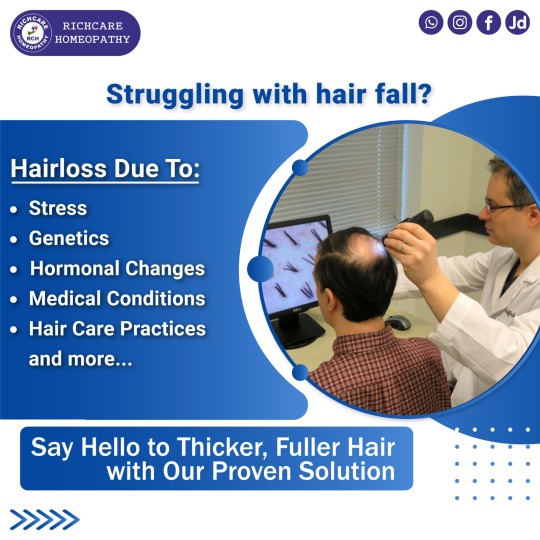
Book An Appointment For Consultation | +91-7411955955 | +91-7411055955 | +91-9036619944 | 080-41241822|
#HairFallSolution, #HairFallTreatment, #HomoeopathicMedicinesForHairFall, #homeopathyclinicinbangalore #homeopathytreatment #treatmenthomeopathydoctors #homeopathyclinicinmysore #homeopathyclinicinhubli #richcarehomeopathy #richcarehomeopathytreatment
0 notes
Text
Can Homeopathy Tackle Dandruff and Premature Graying?
In the realm of holistic medicine, homeopathy stands out as a beacon of natural remedies and gentle healing. While it's often associated with treating various ailments, its efficacy in addressing hair-related issues like dandruff and premature graying remains a subject of curiosity and debate. Let's delve into the intricacies of homeopathy and its potential role in combating these common hair concerns.
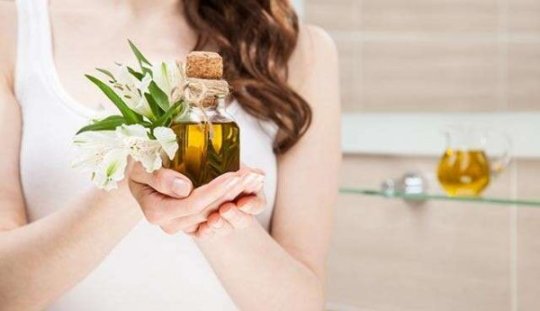
Understanding Homeopathy
Homeopathy operates on the principle of "like cures like" and the concept of potentization, where highly diluted substances stimulate the body's innate healing mechanisms. Instead of targeting symptoms directly, homeopathic remedies aim to restore balance and harmony to the body as a whole, treating the underlying causes of illness or discomfort.
Dandruff: A Persistent Scalp Concern
Dandruff, characterized by itchy, flaky scalp, is a widespread issue affecting millions worldwide. Traditional treatments often involve medicated shampoos or topical solutions targeting the fungal overgrowth or dry scalp conditions. However, homeopathy approaches dandruff treatment from a different perspective.
Homeopathic remedies for dandruff may include:
1. Thuja Occidentalis : This remedy is often recommended for dandruff accompanied by oily skin and hair. It addresses scalp conditions linked to excessive oiliness and helps restore balance.
2. Sulphur: Known for its profound effects on various skin conditions, Sulphur may be prescribed for dandruff with intense itching and burning sensations on the scalp.
3. Natrum Muriaticum : When dandruff worsens with stress or hormonal changes, Natrum Muriaticum may be indicated. It targets imbalances in bodily fluids and may alleviate scalp dryness and flakiness.
4. Kali Sulphuricum : This remedy is beneficial for dandruff with yellowish flakes and may improve scalp health by addressing underlying inflammation.
Premature Graying: Beyond Aesthetic Concerns
Premature graying, the early onset of gray or white hair, can significantly impact one's self-esteem and confidence. While genetics play a significant role, factors such as stress, nutritional deficiencies, and hormonal imbalances can also contribute to premature graying. Homeopathy offers a holistic approach to address these underlying causes.
Homeopathic remedies for premature graying may include:
1. Lycopodium Clavatum : This remedy is often prescribed for premature graying triggered by hormonal imbalances, particularly in individuals experiencing hair loss along with graying.
2. Phosphoric Acid : When premature graying occurs due to grief, stress, or emotional upheaval, Phosphoric Acid may be recommended to restore emotional equilibrium and promote hair health.
3. Silicea: Known for its strengthening effects on hair and nails, Silicea may help slow down the progression of premature graying, especially in individuals with weak, brittle hair.
4. Phosphorus : If premature graying is accompanied by hair thinning or loss, Phosphorus may be indicated to address the underlying nutritional deficiencies and promote hair growth.
The Holistic Approach to Hair Health
While homeopathy offers promising remedies for dandruff and premature graying, it's essential to approach treatment holistically. Lifestyle factors such as diet, stress management, and adequate hydration play a crucial role in maintaining healthy hair and scalp. Consulting with a qualified homeopath can help tailor a treatment plan suited to individual needs, addressing both the physical and emotional aspects of hair-related issues.
In conclusion, while conventional treatments may provide symptomatic relief, homeopathy offers a gentle yet profound approach to tackling dandruff and premature graying from within. By restoring balance to the body and addressing underlying imbalances, homeopathic remedies aim to promote long-term hair health and vitality, allowing individuals to embrace their natural beauty with confidence and grace.
0 notes
Text
Ayurvedic Treatments for Hair Fall
Hair fall is a common concern affecting millions of people worldwide. While modern medicine offers various treatments, many individuals seek natural remedies to avoid potential side effects. Ayurveda, an ancient Indian system of medicine, provides a holistic approach to combating hair fall, focusing on balancing the body, mind, and spirit. In this article, we will explore various Ayurvedic treatments for hair fall, detailing the methods and benefits of each approach.
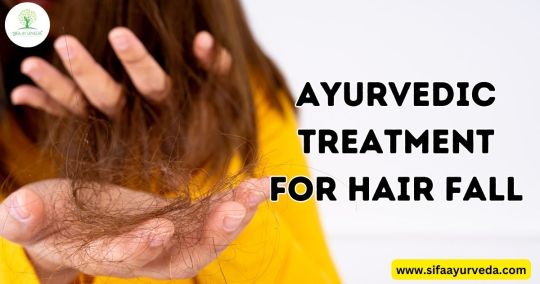
Understanding the Ayurvedic Approach to Hair Fall
Ayurveda views hair fall as a reflection of internal imbalances. According to this tradition, hair health is closely linked to the body's overall health, particularly the state of the doshas—Vata, Pitta, and Kapha. An imbalance in these energies can lead to hair problems, including hair fall.
Balancing the Doshas
Vata Imbalance: Characterized by dry, brittle hair and dandruff. To balance Vata, focus on hydration and nourishment through oil massages and a diet rich in healthy fats.
Pitta Imbalance: Often leads to premature graying and hair thinning. Cooling treatments and stress reduction are key.
Kapha Imbalance: Causes oily scalp and heavy hair loss. Detoxification and stimulating the scalp can help.
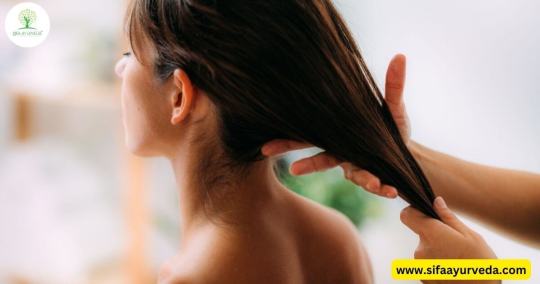
Ayurvedic Dietary Recommendations
Diet plays a crucial role in Ayurveda. Consuming a balanced diet that supports the doshas can significantly impact hair health. Ayurvedic treatments for hair fall,
Foods to Include
Leafy Greens: Rich in iron and vitamins, they support blood flow to the scalp.
Nuts and Seeds: Sources of omega-3 fatty acids and zinc, essential for hair growth.
Amla (Indian Gooseberry): High in vitamin C and antioxidants, it strengthens hair follicles and promotes growth.
Coconut: Known for its cooling properties, it helps balance Pitta and provides nourishment.
Herbal Teas and Decoctions
Brahmi Tea: Enhances hair strength and reduces stress.
Neem Decoction: Purifies the blood, reducing scalp infections and dandruff.
0 notes
Text
Dandruff Dilemma: Can Those Flakes Cause Hair Loss?
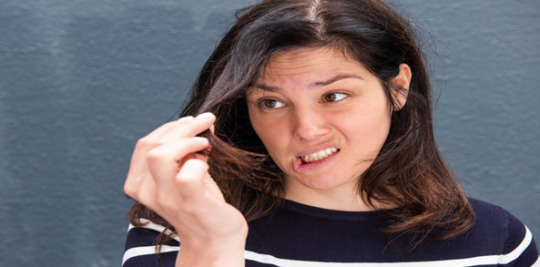
If you're suffering from hair loss, it's only natural to be a little more concerned about your scalp, especially if you're also seeing little white flakes of dandruff falling from your head. You may be wondering whether dandruff and hair loss are related. Read this article to find out if there is a link between the two.
Can dandruff cause hair loss?
Dandruff is a dry, itchy scale that develops on the scalp. It is a symptom, not a specific diagnosis.
Many factors can cause dandruff, including dry skin, diet, stress and certain shampoos and hair products.
Dandruff itself does not cause hair loss. However, severe dandruff can cause a person to scratch their scalp so hard that they injure it.
Repeated inflammation of the hair follicles can cause damage and scarring, slowing or stopping hair growth. Hair can then be weakened or thinned. Twisting hair, aggressive brushing or scratching the scalp can aggravate this type of hair loss.
What are the possible causes of dandruff and hair loss?
Dandruff can be caused by any condition that leads to desquamation of the skin or abnormally rapid shedding of the outer layer of skin. If left untreated, these conditions can also damage the scalp and cause hair loss.
The following conditions can cause both dandruff and hair loss:
Fungal infections: Tinea capitis, or ringworm, can cause intense itching on the scalp. Some people also notice dry scales or blisters, and hair may fall out in clumps.
Psoriasis of the scalp: Psoriasis is a type of autoimmune disease that can affect the scalp, causing scaly, itchy patches to appear.
Decalcifying folliculitis: This rare inflammatory condition destroys hair follicles. It also causes red, itchy patches to appear on the scalp.
Seborrheic dermatitis: Seborrheic dermatitis can affect any part of the body. It usually affects the scalp, where it can cause an itchy red or grayish rash and oily patches.
Any condition that causes itching or burning of the scalp can lead to hair loss when a person scratches their scalp or twists their hair. Children, in particular, may react to scalp pain by pulling their hair.
How can dandruff hair loss be prevented?
Preventing hair loss due to dandruff involves eliminating itching as much as possible. This will reduce your urge to scratch and protect your hair follicles from further damage.
1- Get a diagnosis
Dandruff can be caused by a number of factors, from hair-washing habits to underlying skin conditions. If you're not sure what's causing your dandruff, make an appointment with your doctor or dermatologist.
He or she can examine your scalp to determine whether your dandruff is simply due to washing your hair too often or too little. He or she can also look for signs of an underlying problem, such as :
Dry skin.
This results in small flakes that are not usually accompanied by redness or inflammation.
Seborrheic dermatitis.
Seborrheic dermatitis. This condition causes a skin rash that is often red, scaly and oily. The resulting scales may be white or yellow.
Malassezia.
Malassezia is a fungus found on most people's scalps. However, it can sometimes
irritate the scalp and cause the growth of additional skin cells. When these cells
skin cells die, this can cause dandruff.
Contact dermatitis.
Sensitivity to certain ingredients in products such as shampoo or dye that you use on your hair or scalp can cause redness.
Once you've discovered the underlying cause of your dandruff, you'll be able to treat it more effectively.
2- Use a medicated shampoo
If you haven't already, try using a hair dandruff shampoo designed to combat dandruff. Look for products containing one of the following ingredients:
zinc pyrithione
salicylic acid
ketoconazole
selenium sulfide
Look for anti-dandruff shampoos containing these ingredients.
In cases of mild dandruff, the use of a medicated shampoo may only be necessary for a few weeks.
If you have light-colored hair, it's best to avoid selenium sulfide, which can cause discoloration.
3- Moisturize
Whatever the underlying cause of your dandruff, it's important to moisturize your scalp with conditioner. This is particularly important when using medicated shampoos, especially those containing salicylic acid. These shampoos can become drying when used regularly.
For added benefit, try massaging your scalp with coconut oil, then rinsing. As well as being moisturizing, coconut oil has antifungal properties. Its antifungal activity is similar to that of ketoconazole, an ingredient commonly used in anti-dandruff shampoos.
Avoid using oils on your scalp if you think you suffer from seborrheic dermatitis. The addition of oil can sometimes aggravate this condition.
4- Avoid irritating hair products
Hair dyes and other hair products often contain ingredients that can irritate sensitive skin. This can lead to contact dermatitis. Preservatives and fragrances are common causes of contact dermatitis on the scalp.
Here are just a few examples of potentially irritating ingredients found in hair products:
natural or artificial fragrances
bleach
detergents
formaldehyde
Some people use products for years before noticing any reaction. Even if you've been using the same hair care products without a problem, consider changing your routine if you notice dandruff.
5- Manage stress
Although stress is not the direct cause of dandruff, it can weaken your immune system over time. This can make your scalp more susceptible to the naturally occurring malassezia fungus.
Try to manage your stress by practicing relaxation techniques, such as yoga or meditation. Simply walking around the block or breathing in a controlled manner for a minute or two can help.
6- Get some sun
Although ultraviolet rays cause premature aging and increase the risk of skin cancer, a little sun can be beneficial for dandruff. If you're going out, make sure you apply sunscreen for your face and body.
Things to remember
Dandruff does not immediately lead to hair loss. However, constant scratching of the scalp can damage hair follicles and lead to some hair loss. This phenomenon is not permanent and should disappear once you've found the cause of your dandruff. If you don't yet know the cause, your doctor or dermatologist can help.
0 notes
Text
Things To Know About Oily Scalp And Hair Loss.
One of the biggest problem which is faced by many is hair loss. Oily scalp and hair loss are two common hair problems that can be interrelated though.
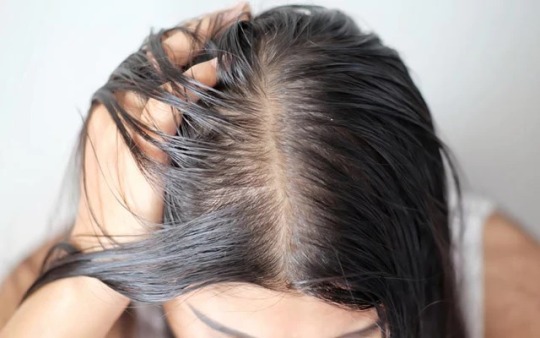
Relationship between oily scalp and hair loss:
An oily scalp is characterized by an overproduction of sebum, the natural oil produced by the scalp. An oily scalp can clog hair follicles, leading to hair loss. This is because excess sebum production can cause an overgrowth of bacteria on the scalp, which can inflame hair follicles and cause hair to fall out.
Underlying Reasons:
1) Genetics can play a role in oily scalp and hair loss
Some people may be genetically predisposed to having an oily scalp and hair loss. This can be caused by a sensitivity to androgens, which are male hormones that can cause excess sebum production.
2) Hormonal changes can affect oily scalp and hair loss
Hormonal changes such as pregnancy, menopause, or starting or stopping birth control pills can affect the production of sebum and contribute to hair loss.
3) Lifestyle factors can contribute to oily scalp and hair loss
Poor diet, stress, and lack of sleep can all contribute to an oily scalp and hair loss. It's important to maintain a healthy lifestyle to keep your scalp and hair healthy.
4) Using the wrong hair products can exacerbate oily scalp and hair loss
Using heavy or greasy hair products can make an oily scalp worse and contribute to hair loss. It's important to use products that are designed for your hair type and avoid products that contain harsh chemicals. You can buy hair loss products online too.
Relax, we have solutions too…
1) Proper hair care
Proper hair care is essential to manage an oily scalp and prevent hair loss. This includes washing hair regularly with a mild shampoo, avoiding harsh chemicals and heat styling tools, using organic hair oil, using a gentle brush, and avoiding tight hairstyles that pull on the hair.
2) Treatment options
Treatment options for an oily scalp and hair loss depend on the underlying cause. For an oily scalp, topical treatments such as shampoos containing salicylic acid, tea tree oil, or ketoconazole can help regulate sebum production and can buy hair loss products online.
3) Lifestyle changes
Certain lifestyle changes can also help manage an oily scalp and prevent hair loss. These include maintaining a healthy diet, reducing stress, and avoiding smoking and excessive alcohol consumption.
4) Consultation with a professional
If you are experiencing hair loss or an oily scalp, it is recommended to consult with a professional, such as a dermatologist or a trichologist, for proper diagnosis and oily scalp hair loss treatment.
Wrap Up!
To sum up, an oily scalp and hair loss can be challenging to deal with, but with proper care and oily scalp hair loss treatment, they can be managed effectively. It is important to identify the underlying cause of these problems and seek professional help if necessary. Always remember, healthy hair starts with a healthy scalp.
0 notes
Link
0 notes
Text
PCOS Treatment: Say Goodbye to PCOS and PCOD

Polycystic Ovary Syndrome (PCOS) and Polycystic Ovarian Disease (PCOD) are common hormonal disorders that affect many women worldwide. These conditions can cause a range of symptoms, including irregular periods, weight gain, acne, and infertility. However, with the right treatment and lifestyle changes, it is possible to manage PCOS and restore hormonal balance. If you're looking for effective PCOS treatment in Indore, this guide will provide you with everything you need to know.
Understanding PCOS and PCOD
PCOS and PCOD are hormonal disorders that affect the ovaries and can lead to a variety of symptoms. Women with PCOS often have higher than normal levels of androgens, or male hormones, which can disrupt the menstrual cycle and lead to the formation of cysts on the ovaries. PCOS can also cause insulin resistance, which can lead to weight gain and increase the risk of developing type 2 diabetes.
Symptoms of PCOS and PCOD
Irregular periods or no periods at all
Heavy or prolonged periods
Excess hair growth on the face, chest, or back
Acne and oily skin
Weight gain or difficulty losing weight
Thinning hair or hair loss on the scalp
Infertility or difficulty getting pregnant
Treatment Options for PCOS
Lifestyle Changes:
Making changes to your diet and exercise routine can help manage PCOS symptoms. Eating a balanced diet low in refined carbohydrates and sugar and exercising regularly can help improve insulin sensitivity and regulate hormone levels.
Medications:
Your doctor may prescribe medications to help regulate your menstrual cycle, reduce androgen levels, or improve insulin sensitivity. Common medications for PCOS include birth control pills, anti-androgen medications, and metformin.
Fertility Treatments:
If you're having trouble getting pregnant, fertility treatments such as ovulation induction or in vitro fertilization (IVF) may be recommended.
When seeking treatment for PCOS, it's important to choose the right gynecology hospital in Indore. Here are some factors to consider:
Reputation: Look for a hospital with a good reputation for providing quality gynecological care and treating PCOS.
Specialization: Choose a hospital with gynecologists who specialize in treating hormonal disorders such as PCOS.
Facilities: Ensure the hospital is well-equipped with state-of-the-art facilities for diagnosing and treating PCOS.
Patient Reviews: Read reviews from other patients who have received treatment at the hospital to get an idea of the quality of care provided.
City Nursing Home in Indore is a leading gynecology hospital known for its expertise in treating hormonal disorders such as PCOS. With a team of experienced gynecologists and state-of-the-art facilities, City Nursing Home is committed to providing the highest quality care to women in Indore and surrounding areas.
PCOS and PCOD can have a significant impact on a woman's life, but with the right treatment and support, it is possible to manage these conditions and restore hormonal balance. If you're looking for effective PCOS treatment in Indore, for comprehensive care tailored to your needs. Schedule a consultation today and take the first step towards saying goodbye to PCOS.
#best hospital in indore#best hospital indore#orthopedic doctor in indore#best orthopedic doctor in indore#indore orthopedic doctor#orthopedic indore#haddi rog visheshagya indore#best doctors in indore#orthopedic surgeon indore#best cancer hospital in indore#haddi ka doctor indore#best knee replacement surgeon in indore#best orthopedic hospital in indore#ortho hospital in indore#ortho hospital indore#bone specialist in indore
0 notes
Text
Explore the 10 Symptoms of PCOD
Polycystic Ovary Syndrome (PCOS), also known as Polycystic Ovary Disorder (PCOD), is a common endocrine disorder among women of reproductive age. It can manifest with various symptoms, varying in severity from person to person. The best doctor for PCOD treatment specializes in endocrinology or gynecology, with extensive experience in managing hormonal disorders and reproductive health. Look for a healthcare provider who offers personalized care tailored to your specific needs and concerns regarding PCOD.
Ten Common Symptoms of PCOD
Irregular Menstrual Cycles: One of the hallmark symptoms of PCOD is irregular periods. Women with PCOD may experience infrequent periods, prolonged menstrual cycles, or unpredictable bleeding patterns.
Ovulation Irregularities: PCOD often disrupts the normal ovulation process, leading to irregular or absent ovulation. This can result in fertility issues and difficulty conceiving.
Excessive Androgen Levels: Elevated levels of androgens (male hormones), such as testosterone, may be present in women with PCOD. This hormonal imbalance can cause symptoms such as acne, hirsutism (excessive hair growth), and male-pattern baldness or thinning of hair.
Polycystic Ovaries: While not all women with PCOD have ovarian cysts, the condition is characterized by multiple small cysts on the ovaries. These cysts are often detected during ultrasound examinations.
Weight Gain: Many women with PCOD struggle with weight management. Insulin resistance, common in PCOD, can lead to weight gain, especially around the abdomen.
Insulin Resistance: PCOD is often associated with insulin resistance, a condition in which the body's cells become less responsive to insulin. Insulin resistance can lead to high blood sugar levels and an increased risk of type 2 diabetes.
Skin Problems: Hormonal imbalances associated with PCOD can contribute to skin issues such as acne, oily skin, and dark patches, especially along the neck creases, groin, and underneath breasts (acanthosis nigricans).
Hair Issues: Excess androgens in PCOD can cause hirsutism, which is the growth of coarse, dark hair in areas where men typically grow hair, such as the face, chest, and back. Conversely, some women may experience hair thinning or hair loss on the scalp (androgenic alopecia).
Mood Swings and Depression: Hormonal fluctuations in PCOD can affect mood and contribute to symptoms of depression, anxiety, irritability, and mood swings.
Metabolic Syndrome: PCOD increases the risk of developing metabolic syndrome, a cluster of conditions that include high blood pressure, high blood sugar levels, abnormal cholesterol levels, and excess abdominal fat, all of which significantly increase the risk of heart disease and type 2 diabetes.
It's essential to note that not all women with PCOD will experience all of these symptoms, and the severity of symptoms can vary widely among individuals. Additionally, the diagnosis of PCOD is typically made based on a combination of symptoms, physical examination, blood tests, and ultrasound findings. If you suspect you have PCOD or are experiencing any of these symptoms, it's essential to consult with a healthcare professional for proper evaluation and management.
0 notes
Text
Some trichologists can also treat problems related to conditions like alopecia and trichotillomania, or hair-pulling disorder. These specialists work and help people with hair loss, hair breakage, oily scalp, and scalp psoriasis. Book your next treatment https://app.acuityscheduling.com/schedule.php?owner=21401844
#scalptreatment#hairloss#trichology#hair salon#hairregrowth#hairlosstreatment#hairdoctor#haircare#trichologist#hairlossclinic
0 notes
Text
Ultimate Guide to the Best Ayurvedic Oils for Hair Growth
In the quest for luscious, healthy hair, many have turned to the ancient wisdom of Ayurveda. Ayurvedic oils offer a holistic, natural approach to hair care, utilizing potent herbs and ingredients that promote hair growth and scalp health. This blog explores the best Ayurvedic oils for hair growth, guiding you on how to choose and use them effectively.
Principles for Achieving Healthy Hair
Ayurvedic oils are formulated to balance these Doshas, promoting healthy hair growth. For example, Vata imbalance often results in dry, brittle hair, while Pitta imbalance can cause thinning and greying. By addressing these imbalances, Ayurvedic oils help restore hair health from the inside out.
Choosing the Right Ayurvedic Oil for Your Hair Type
Choosing the right Ayurvedic oil for hair growth depends on your hair type and specific needs. Here are some tips to help you find the perfect match:
Dry Hair: Look for oils with moisturizing ingredients like coconut oil and sesame oil.
Oily Hair: Opt for lighter oils such as neem oil or tea tree oil.
Normal Hair: Balanced oils like bhringraj and amla are suitable for all hair types.
Specific Concerns: If you have dandruff, choose oils with neem or tea tree. For hair fall, bhringraj and amla are excellent choices.
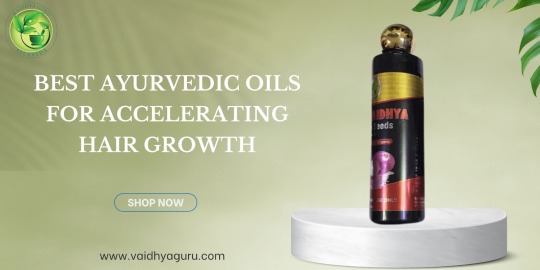
Benefits of Ayurvedic Oils for Hair Growth
Holistic Approach to Hair Health
Ayurvedic oils do more than just treat the symptoms of hair problems; they address the underlying causes, ensuring a holistic approach to hair health. This method ensures that your hair is not only healthier but also more resilient to future issues.
Customizable Treatments
One of the standout features of Ayurvedic hair care is its customizable nature. Depending on your specific Dosha imbalance (Vata, Pitta, Kapha), you can select oils that are tailored to balance your body's unique constitution. This personalized approach enhances the effectiveness of the treatment.
Scalp Health and Detoxification
Ayurvedic oils often contain ingredients that detoxify the scalp. Neem, for instance, is known for its antibacterial properties, which help in cleansing the scalp and preventing infections. A clean, healthy scalp is a fertile ground for hair growth.
Stress Reduction and Improved Circulation
Regular scalp massages with Ayurvedic oils not only improve blood circulation to the hair follicles but also reduce stress. Ingredients like Ashwagandha in Ayurvedic oils help lower cortisol levels, reducing stress, which is a common cause of hair loss.
Conclusion
In conclusion, the best Ayurvedic oils for hair growth offer a natural, effective, and holistic approach to hair care. By incorporating powerful herbs like Amla, Bhringraj, and Brahmi, these oils nourish the scalp, strengthen hair roots, and promote new hair growth. If you’re looking to enhance your hair health, consider trying Ayurvedic oils and experience their numerous benefits.
0 notes